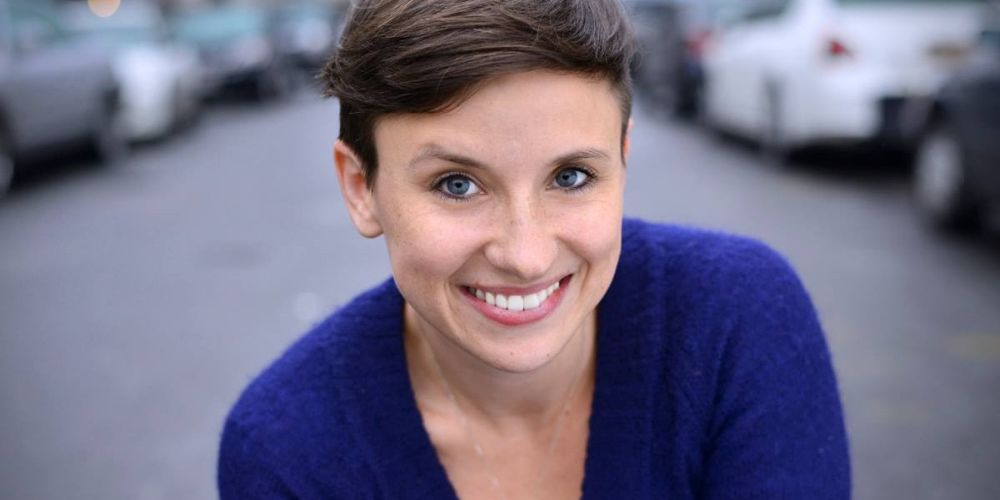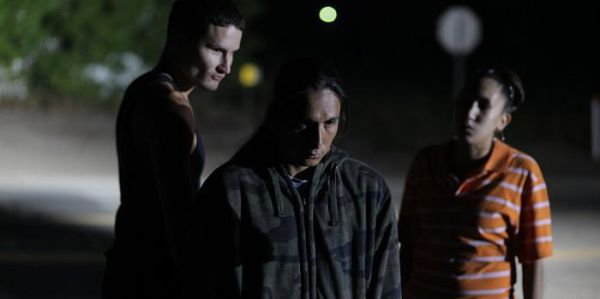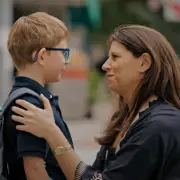Interview With Emily Best, Founder And CEO Of Seed&Spark

Manon de Reeper is the founder and CEO of Film…
Last week, I had the pleasure to talk with Emily Best, who founded the company called Seed&Spark, a crowdfunded film studio. Seed&Spark helps independent filmmakers crowdfund their films, produce them and distribute them. In their own words:
“We started Seed&Spark because we want to make films but we needed a healthier environment in which to make them. We believe the art of storytelling is about expanding imagination, shining a light on the world inside and deepening empathy for the world outside.”
Seed&Spark has had the highest campaign success rate in the crowdfunding industry, making it a very interesting alternative over the usual suspects such as Indiegogo or Kickstarter. Aside from crowdfunding for funds, filmmakers can even list specific items they need on their “wishlist”, which supporters can then buy for or loan to them. Moreover, by crowdfunding through Seed&Spark, filmmakers qualify for distribution through digital VOD and platforms such as Netflix, Hulu, Amazon, et cetera.
As a member of the audience, you can both help fund films on Seed&Spark’s website, but also watch them! They offer an excellent streaming service, and you can pay with actual money, or the on-site currency called “sparks”, which you get by funding films, or performing other actions on the site. It’s also incredibly satisfying to see a film you supported get the “green light”, meaning it will go into production.
Seed&Spark bridges the gap between filmmakers and audience, and does so in a casual, fun and comprehensive way.
Manon de Reeper: How did you come to found Seed&Spark?
Emily Best: In 2011, my friends and I wanted to make a film that showed women on screen we recognized, and all of a sudden I was producing my first feature film. What I learned in that process is that making a film with a fresh perspective is an insanely uphill battle, and the economics even for the biggest success stories are abysmal. But I wanted a sustainable career in filmmaking, so I gathered a team of filmmaker entrepreneurs who wanted to work towards the same goal, and we’ve been working on Seed&Spark, and, miraculously, our own movies and shows ever since!
What distinguishes Seed&Spark from other crowdfunding platforms?
EB: We’re not a just crowdfunding platform, we’re a crowdsourced film studio. We provide the tools and resources for independent movies and shows to go from funding all the way through distribution. Our crowdfunding platform has the highest campaign success rate in the world (around 75%), and our distribution footprint reaches 100M US homes across all platforms and devices.
What’s the benefit of working with Seed&Spark for filmmakers?
EB: We’re a career-building platform for filmmakers. Our interest is in providing filmmakers the education and resources they need to build independent, sustainable careers. It’s not just about one film or show, it’s about using one’s entire body of work to grow towards financial sustainability.
Seed&Spark was founded in 2012. It’s been four years. What’s changed over time? What have you learned?
EB: We started in December of 2012, so we’re really just in the middle of our fourth year and what we’ve learned is that the kind of transformational shift we’d like to see in the industry, as we suspected, will take time and critical mass. The good news is we’re getting closer. We believe that fundamentally, you can’t get the diversity of content for audiences we’re all demanding without providing sustainability for artists. Studio films are made for half a billion dollars and need to reach 100M people to really be successful. One film to one hundred million necessarily means a lot of perspectives will be left out.

We want to build a path of sustainability so that 10,000 artists (or more!) can reach 10,000 audiences each. That’s still reaching 100M people, but profoundly more tailored to the unique and diverse demands of today’s audiences. It’s not about getting rich, famous, or becoming a millionaire.
It’s about connecting with the audiences who want to see YOUR work as a creator, and having the education and tools you need to be able to build a sustainable living out of that connection. If we do not work towards sustainability for artists, then independent movies and shows will just be the purview of the already privileged, and change will continue to be as monumentally slow as it has been.
How many projects has Seed&Spark successfully completed to date?
EB: We don’t consider it our completion – the success of completion belongs entirely to the filmmakers. Over 300 projects have successfully funded, and dozens more are currently funding. Those 300 projects are in various stages of: production, festivals and distribution.
I hear filmmakers and films are vetted before they get accepted. How does a film get accepted to Seed&Spark?
EB: No, filmmakers and films are not getting vetted. We vet the preparedness to run a successful crowdfunding campaign. We don’t want to determine who or what kind of movie or show could attract a wide audience – what we know is what it takes to run a successful campaign. So we make sure filmmakers have the education they need (through our class), and then we assess various elements (social reach, team, outreach plan, pitch video) and provide constructive feedback on each. We don’t outright say YES to any project that fits our guidelines.
Our goal is that filmmakers launch crowdfunding campaigns that are ready to succeed. It takes a lot more than most people think, and we’re not about making it seem easy. If you’re going to really get the full career-building benefits of crowdfunding (starting with a successful raise) it can take as much preparation as making the film itself. We’re not pulling any punches about the work it will take, and we give you the tools and feedback you need to succeed.
So filmmakers may submit all their materials and we will provide feedback on those materials. Filmmakers have sometimes pushed back hard on our feedback and we ran some experiments to see what happened when we allowed filmmakers to launch in spite of not taking our feedback. Those projects had nearly 90% failure rate, as opposed to the 80% success rate of the projects that take our feedback.
From start to finish, what are the steps during a campaign? How is Seed&Spark involved during the campaign?
EB: We don’t have a short answer to this, this is the key to everything. We put together a comprehensive video course to make sure every filmmaker is prepared to succeed not just with one successful crowdfunding campaign, but leveraging that campaign to build a lasting, sustainable, direct relationship with their audiences.

Our team provides personalized feedback during the on-boarding process, so we recommend sending us a rough cut and not a finalized pitch video and giving yourself at least one week between submitting materials and the planned launch date to make adjustments according to the feedback. Here is the Crowdfunding to Build Independence Class. It’s why we have the highest campaign success rate in the world.
How do you see your role now that some large funders, such as the MacArthur foundation, have ceased providing grants for individuals? Is that a hole you are actively trying to fill?
EB: Yes, it is, though we’re not a non-profit and I don’t want to represent that we are. We do well when our filmmakers do well (which I think is the correct relationship for us to have to our filmmakers.) We’ve launched the beta phase of a platform-level membership. Audiences can now sign up for $10/month and get complete access to our streaming library, and they get to contribute $5 of those dollars each month to a new crowdfunding project of their choice.
The more the membership grows, the more we have in monthly funding to allocate to new projects coming down the pipeline. Imagine: at 100,000 members, there’s $500,000 A MONTH being allocated to new projects by the audiences who are excited to get involved. That’s what we’re focusing all our energy towards building in the next two years.
Can you envision a world in which crowdfunding replaces studios entirely? Or is it more of a complement to those traditional sources?
EB: I think the studios and the world of half billion dollar movies is likely to exist for a long time. There are certain things you can only really do with a 200M+ budget. (I mean, until AI is making all your CGI for you, I guess?) But thanks to mobile technology, social media and the ever lowering cost of production, we’re in a position to have thousands more artists making money making great stuff for the audiences who are not served by the studio fare.
I noticed you’ve also featured international films and filmmakers on Seed&Spark. How do you work with international filmmakers, and how does your international distribution work? Is everyone allowed to join, no matter where they’re from, both from the filmmaking side and the audience side?
EB: Right now, crowdfunding is only available to those with a US SSN. Movies and shows that are streaming on our platform can be made available anywhere in the world (or can be geo-blocked if need be). Our output deals to the 100M US homes on the likes of iTunes etc can be made available to international filmmakers as well. We hope to expand our total capacity by the end of 2017.
What films have you helped get funded in the past that you’re especially excited about, or proud of?
EB: Oh, gosh, all of them? I think every filmmaker who takes on this new way of coming to work: building audiences, raising funds, and finishing their films deserves all the pride. Rez is a narrative short that saw some very early success and I think really achieved what the filmmaker was after: namely, reaching youth on many Native American Reservations in the US.

Similarly, I AM THALENTE, which crowdfunded and distributed both theatrically and digitally with Seed&Spark reached its more community based goal of getting the doc’s subject Thalente’s message out to young people everywhere. It has reached thousands of young people through partnerships with big Skateboard brands like LRG and Rastaclat as well as with the Boys and Girls Club of America.
[easy-tweet tweet=”‘Films that do well with crowdfunding tend to be more different, interesting, daring and ambitious'” user=”FilmInquiry” usehashtags=”no” template=”light”]Films and filmmakers have a lot of different versions of success. What we find is that films that do well with crowdfunding tend to be more different, interesting, daring and ambitious in their artistic and social scope than their studio counterparts because filmmakers must articulate the big WHY their film should get made.
Audiences tend to reward the most daring, NOT the movies and shows that look the most like what they could find anywhere else.
Thank you so much for taking the time to answer my questions, Emily!
Seed&Spark is currently running the New Voices crowdfunding rally (#NewVoiceRally). They’re inviting TV makers to fund their pilot or teaser through Seed&Spark, with a chance to win $30,000, a TV development deal, distribution to millions of homes, and more!
Yes please. I’d totally watch a female Heisenberg!
For filmmakers who’d like to submit their series to Seed&Spark, go here for more information. You have until September 1 to submit (but sooner is better)! For the audience, keep an eye out for these great new series ideas, as they’ll start their crowdfunding campaigns on September 5, through to October 7, 2016.
What do you think about Seed&Spark? Did you already know about them? Share your thoughts in the comments!
Does content like this matter to you?
Become a Member and support film journalism. Unlock access to all of Film Inquiry`s great articles. Join a community of like-minded readers who are passionate about cinema - get access to our private members Network, give back to independent filmmakers, and more.
Manon de Reeper is the founder and CEO of Film Inquiry, and a screenwriter/producer. Her directorial debut, a horror short film, is forthcoming in 2021.











